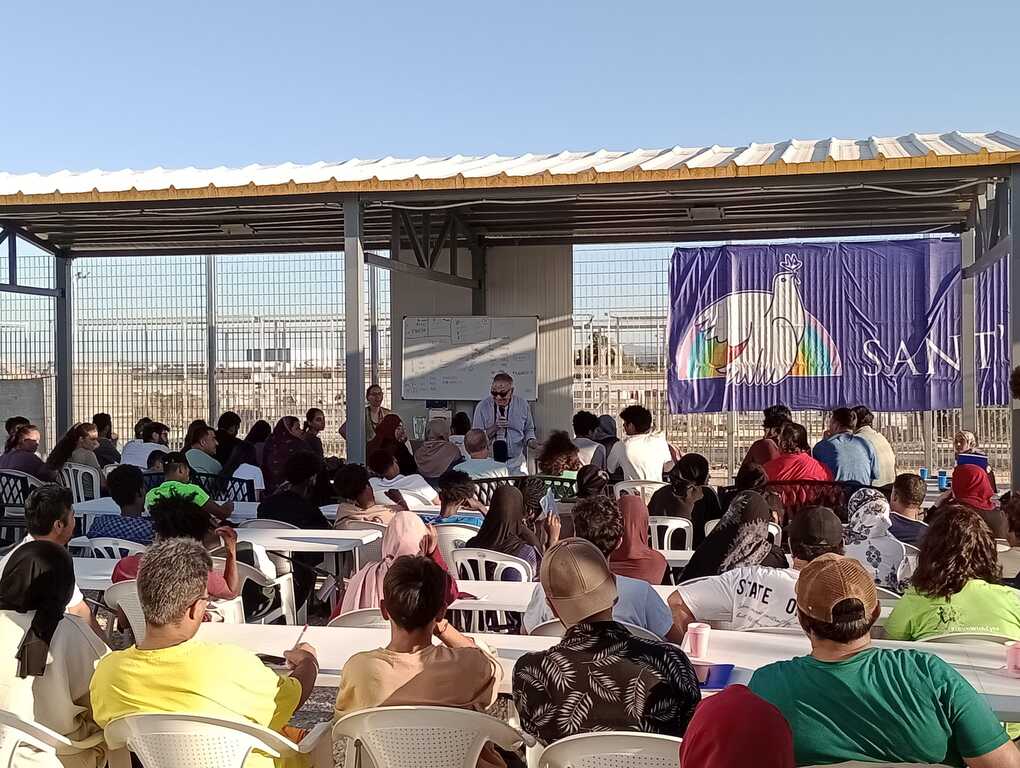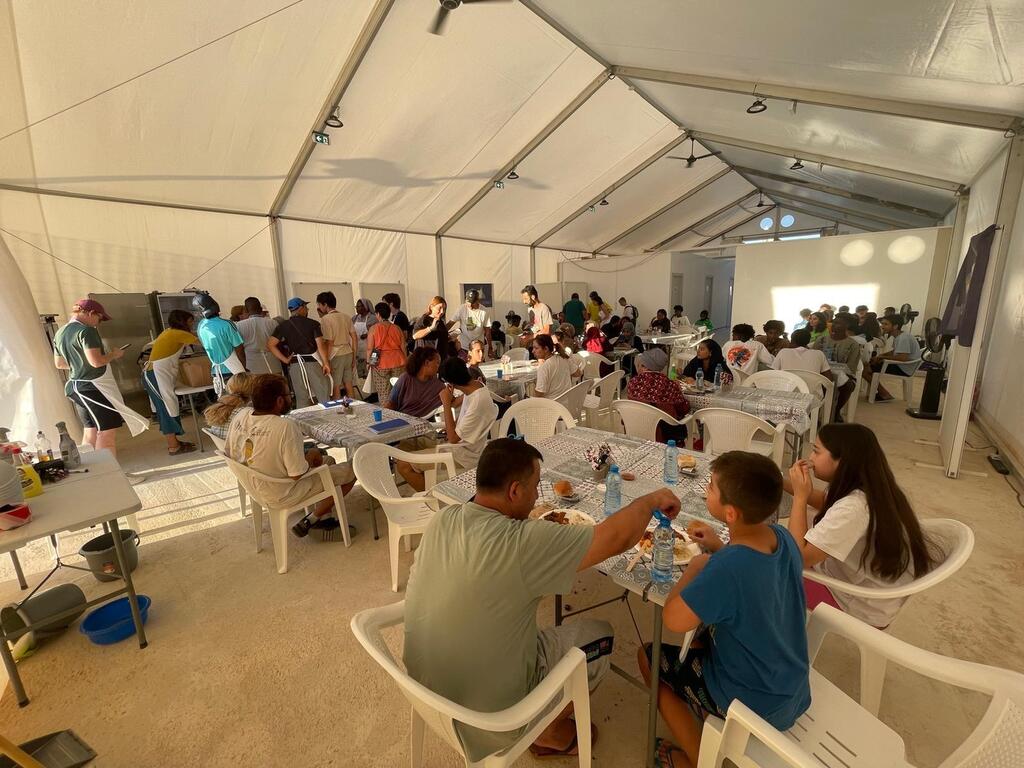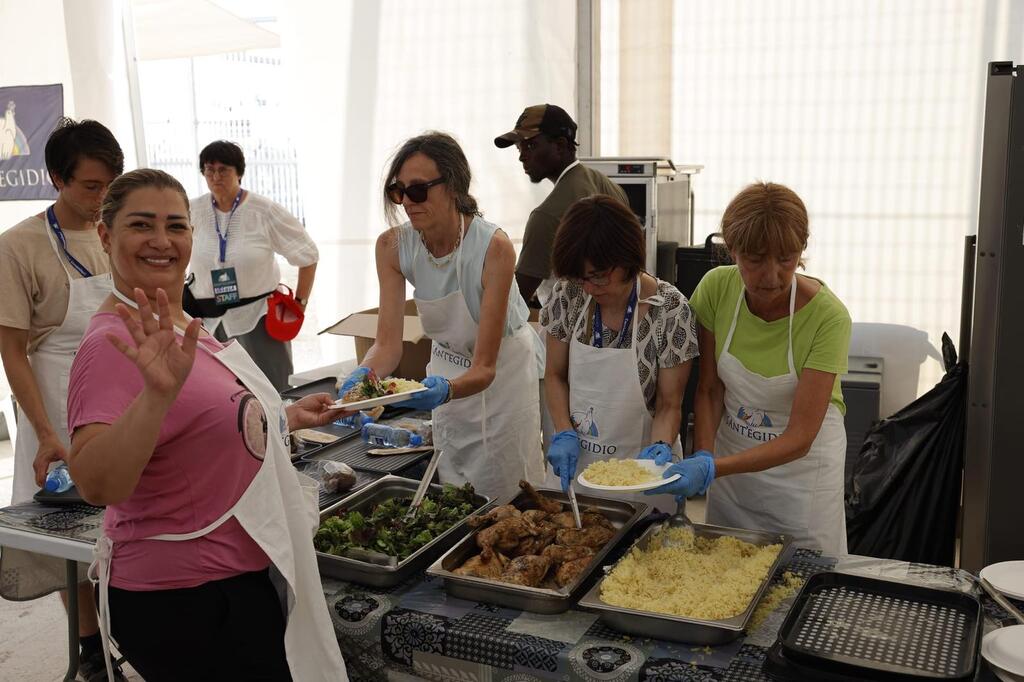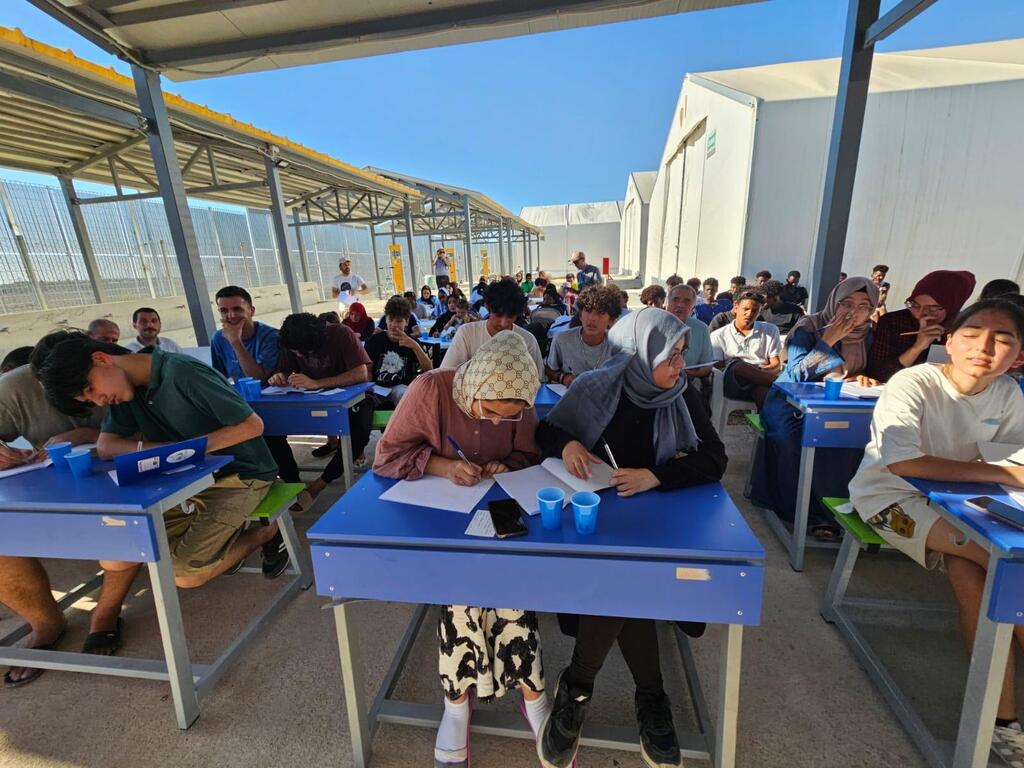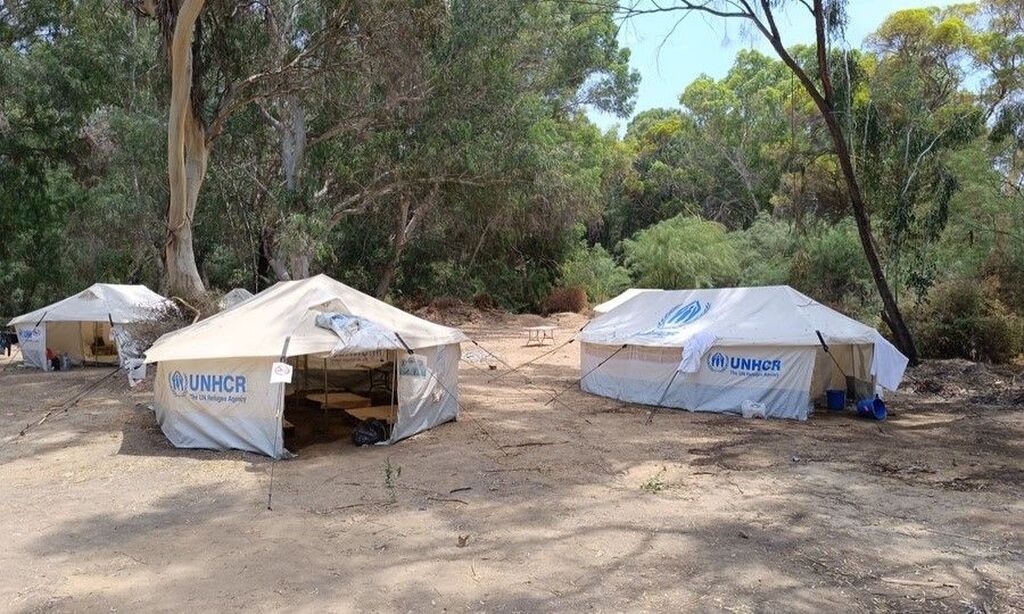The Community of Sant'Egidio's Summer of Solidarity with Asylum Seekers and Refugees has just begun on the island of Cyprus. This is the third year that delegations of the Community from all over Europe have gathered on the Mediterranean island for five weeks during the summer to meet migrants, strengthen relations with them, offer meals, lessons, solidarity and friendship.
On 25 July, the Tent of Friendship opened in the Pournara refugee camp, which is used for the initial reception and registration of migrants. It is an eagerly awaited time for the residents of the camp to enjoy tasty food, take part in English classes. The little ones can play in the playground while the older children take part in the activities organised by the School of Peace. When the torrid heat subsides in the evening and a cooling breeze rises from the sea, the day ends with singing and dancing.
The migrants are mainly families and individuals from Syria, Afghanistan, Somalia, Iran, Kurdistan and some from the Congo. Recently, some Sudanese young people have also arrived, former university students from Khartoum who have fled the capital because it has become unsafe to live in because of the war. The English courses have also recorded a very high number of enrolments this year for this reason.
Like all EU countries, Cyprus has recently pursued a very restrictive policy aimed at minimising the number of asylum applications. Even though the number of asylum seekers in Pournara has fallen sharply - from around 1,000 last year to just 200 - there are still other camps, such as the one in Kofinou, where almost 600 people and 160 children live. Food parcels have been distributed there regularly and a school of peace has been set up for children.
There are also numerous unaccompanied minors in Cyprus, accommodated in centres scattered across the island. Activities, excursions, meetings and entertainment have been organised for them too.
New this year is the opportunity to visit some migrants stranded in the so-called ‘buffer zone’. This is a buffer zone that separates the northern part of the island, ‘Turkish’ Cyprus, from the Republic of Cyprus, the European part. It is a kind of no man's land controlled by the UN blue helmets. For those who get stuck there because they have not managed to cross the border, the scenario is bleak: a sun-drenched, formerly swampy plain, infested with insects and vermin, lacking any resources.
At the moment about fifty refugees live there, families with many children, single Afghan or African women and some people with disabilities. The Community has tried to alleviate their plight by bringing them the basic necessities, such as camp beds so that they no longer have to sleep on the floor.














